Whether it’s spooky season, Thanksgiving, or just another day at home, you might be tempted to give your cat a little bit of pumpkin. But can cats eat pumpkin? In most cases, the answer is “yes!”
Find out more about how you can safely share pumpkin with your cat.
Is Pumpkin Safe for Cats?
Pumpkin, as long as it's plain, is safe for cats and has several health benefits. Just pay mind to proportion sizes and the type of pumpkin you're feeding your cat.
Health Benefits of Pumpkin for Cats
When prepared and fed to cats correctly, pumpkin can help with:
- Gastrointestinal upset: Plain pumpkin can be a good source of moisture and fiber for cats experiencing gastrointestinal difficulty.
- Constipation: Canned pumpkin, which has a higher moisture content, is a good option for cats with mild constipation.
- Diarrhea: On the other hand, the fiber content of canned pumpkin also helps to bulk stools during episodes of diarrhea.
- Hairballs: Pumpkin may also be beneficial for cats who are prone to hairballs. Pumpkin can help move the hair through the gastrointestinal tract.
- Weight loss: Because pumpkin is low in calories, it may also be a good treat option for cats who are obese or need to lose weight.
How to Feed Pumpkin to Cats
You can feed your cat cooked pumpkin, or you can use plain canned or pureed pumpkin from the store. You should introduce pumpkin slowly to your cat, starting with a bite or two. Adult cats can start with 1 teaspoon twice daily. If your cat takes a liking to the orange stuff, you can slowly increase the amount up to 1 tablespoon twice daily.
Stick to feeding your cat the flesh or fruit of the pumpkin. The stem, leaves, skin, and whole seeds could become choking hazards or cause blockages in the stomach or intestines.
If you plan to cook your own pumpkin, you can steam or roast the pumpkin flesh. Do not add spices, salt, or oils to the pumpkin. Alternatively, you can feed your cat canned pumpkin puree by mixing it into the cat’s food.
Precautions and Considerations
Here are a few things to look out for or avoid when feeding pumpkin to your cat.
Too Much Pumpkin
Keep in mind 90% of your cat’s daily caloric intake needs to come from their well-balanced, nutritionally complete diet that meets guidelines set by the Association of American Feed Control Officials (AAFCO). Feeding too much pumpkin can throw off the balance of your cat’s diet. Pumpkin has a low caloric content, so it’s unlikely to contribute to obesity, but it still shouldn't account for the bulk of your cat's diet.
Added Ingredients
Pumpkin pie filling and canned pumpkin filling that has added spices aren’t good for your cat. If your cat is given this type of pumpkin, they could experience vomiting, diarrhea, stomach pain, and loss of appetite. Additionally some spices, like clove, can be toxic for cats.
Food Allergies
Some cats may be allergic to pumpkin, with signs including itchiness, skin rashes, vomiting, and/or diarrhea. Stomach upset can happen if the food is introduced too quickly, so a slow introduction is recommended. If your cat develops skin issues after eating pumpkin, stop feeding pumpkin and consult with your veterinarian.
Raw Pumpkin
Additionally, raw pumpkin that’s been sitting out for a spell may contain bacterial organisms that could upset your cat’s gastrointestinal tract. Cooking the pumpkin or choosing canned pumpkin helps prevent both infection and choking. Cooking can also make this fruit (yes, pumpkin is technically a fruit) more digestible.
It’s always a good idea to consult with your veterinarian before making changes to your cat’s diet.
Other Safe Fruits and Veggies for Cats
If your cat tires of pumpkin, here is a short list of other cat-safe fruits and veggies to share with your feline.
- Strawberries
- Apples
- Blueberries
- Cranberries
- Raspberries
- Blackberries
- Mangos
- Carrots
- Green beans
- Celery
- Green bell peppers
- Zucchini
- Broccoli

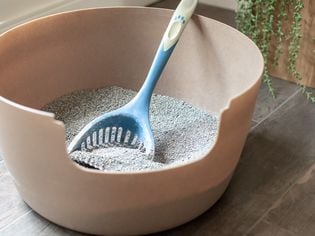
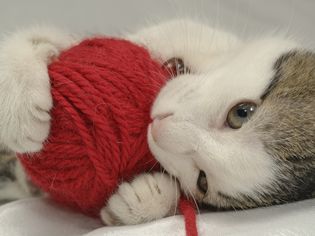
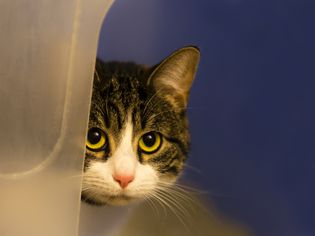
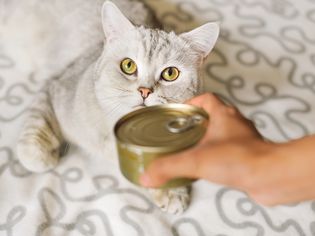
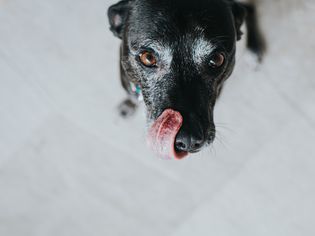
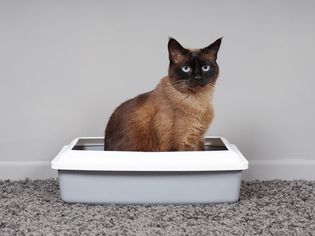
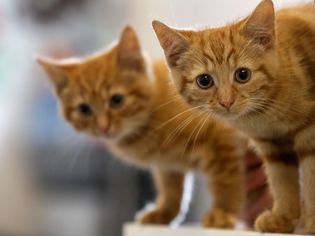
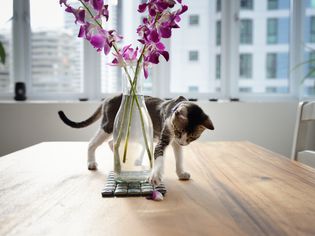
Comments on "Can Cats Eat Pumpkin? This Vet Says Yes" :